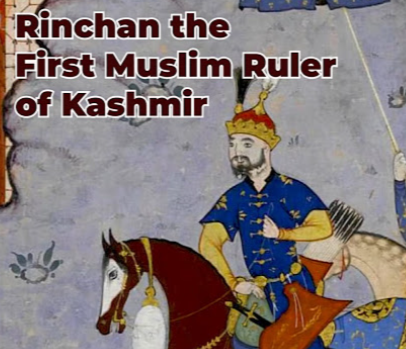Hazrat Syed Abdul Rahman Turkistani was the first to arrive in Kashmir during the reign of Rinchin Shah. The king of Kashmir embraced Islam at his hands, becoming the first Muslim king of Kashmir. His conversion marked the beginning of the state’s support for Islam, which had significant implications for the spread of the faith in the region. Hazrat Bulbul Shah, his companion Hazrat Mulla Ahmad, and Rinchin Shah’s tombs still lie in Allikadal Srinagar, near the banks of the Jhelum River.
I had the privilege of visiting these sacred sites in 2018-2019 and offered prayers for their souls. I also visited the first mosque in Kashmir, built by Hazrat Bulbul Shah. The mosque, though very simple, was a blessed place. Unfortunately, I was unable to offer prayers there as the mosque was under renovation at the time. It is also notable that the mosque does not have a minaret.
During this time, I was serving as the Zonal Education Officer in Char Dura and Nagam areas of Budgam, Kashmir. Hazrat Bulbul Shah was a Hanafi by school of thought and belonged to the Suhrawardi Sufi order. His spiritual lineage traced back to the renowned Sufi saint Shah Nimatullah Al-Farsi Shirazi. It was under the guidance of his master that Hazrat Bulbul Shah came to Kashmir to spread Islam.
A few years after Hazrat Abdul Rahman Bulbul Shah’s arrival, Hazrat Shah-i-Hamdan Syed Ali Shah Hamadani, with 700 noble descendants, arrived in Kashmir from Hamadan, Iran, in 1314-1384 CE. Hazrat Shah Hamdan was a Shafi’i by school of thought and a Kubrawi by spiritual affiliation. He and his companions spread the message of Islam through wisdom, following the Quranic command, “Invite to the way of your Lord with wisdom” (Quran 16:125). Hazrat Shah Hamdan focused solely on spreading Islam rather than promoting his own sect, which was a sign of great wisdom. Hazrat Shah Hamdan and his companions carried out this mission with remarkable success, spreading Islam throughout the region. He visited Kashmir three times: in 774, 781, and 785 AH.
The Khanqah of Hazrat Shah Hamdan, located on the banks of the Jhelum River in Srinagar, is still standing today. It served as his place of worship and became a center for his religious and missionary work. Today, thanks to the tireless efforts of Hazrat Bulbul Shah and Hazrat Shah Hamdan, around 90-95% of Kashmir’s population is Muslim. Hazrat Shah Hamdan’s missionary work extended beyond Kashmir to Baltistan and Ladakh. Through his efforts, these regions, including Gilgit, Skardu, Dras, Kargil, Bogdang, and Leh, are entirely Muslim today.
Similarly, there are other religious sites around the world associated with the life of Buddha, such as Lumbini in Nepal, where Buddha was born, Bodh Gaya in Bihar, where he attained enlightenment, Sarnath in Varanasi, where he gave sermons to his first disciples, and Kushinagar in Gorakhpur, where he passed away. These places are significant pilgrimage sites for Buddhists, attracting thousands of followers. These sites also present an opportunity for spreading Islam, similar to how the Prophet Muhammad (PBUH) and his companions would preach in marketplaces like Suq ‘Okaz, Suq Dhul-Majaz, and Suq Majnah.
When I visited Sarnath in Varanasi in 2007, I had the thought that we too could engage with people at such religious sites and spread the message of Islam with wisdom and respect. I brought this up with some leaders of Islamic organizations, and I also saw many opportunities for missionary work at Banaras Hindu University (BHU). I visited the Arabic, Pali, and Sanskrit departments there. I found the Arabic department in poor condition, and when I spoke to people in Arabic, they apologized, saying they could not speak the language. I was surprised because they were in the Arabic department but could not converse in Arabic. In contrast, the professors in the Pali and Sanskrit departments were very courteous and friendly.
I was greatly inspired by the words of Hazrat Maulana Muhammad Farooq Khan, who emphasized the importance of understanding the religion, culture, and traditions of the community one seeks to preach to. Hazrat Maulana Farooq Khan was highly active in preaching among Hindu religious leaders and translated the Quran into Hindi. He also wrote a commentary on Maulana Syed Abul A’la Maududi’s book “Tafseer-ul-Quran.” These books, compiled under the title “Kalam-e-Nabuwat,” are available in seven volumes. I read these books in 1983 when I purchased them.
In conclusion, scholars should focus on spreading the message of Islam through wisdom, good advice, and respectful discourse, as commanded in the Quran: “Invite to the way of your Lord with wisdom and good counsel, and argue with them in a way that is best.”
Submit Your Story
Let your voice be heard with The Azadi Times
